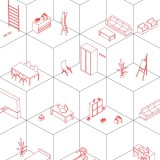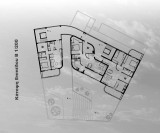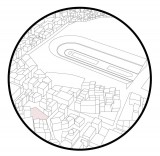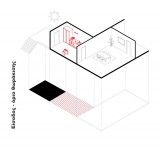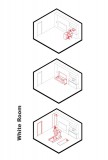Supervisors:
2021
In 2020 the breakout and the rapid spread of Covid-19 Pandemic, came to challenge the coherence of the social structures, bringing humanity at the risk of a pandemic. To control the transmission as priority, social contact and overcrowding are restricted. Thus, for the protection of citizens, most governments worldwide, take strict measures to reduce affairs and transportation, adopting models of total quarantine. The prolonged period of restrictions brings modern man face to face with the conditions he has formed around him, limiting his needs within the, usually narrow, limits of his residence. Teleworking, sports, hobbies at home and the increased needs for cleanliness and hygiene, are some of the factors that shape the new housing condition. How easily the increased needs of modern man can "fit" in a house, when in most cases, it is an apartment in a building with high density and limited outdoor space? What are the characteristics of the post-Covid residence, which is structured in a new social reality?
This dissertation is the final stage of an annual study on the effect of diseases on architectural thinking and development, a continuation of the valuable research, presented in detail, in our research paper entitled “40 giorni | Building the cure”. Through questionnaires conducted in two phases during quarantine, the study anticipates shaping our ideas and thoughts about the future of home life. Our program, an apartment building in the heart of the Athenian center, harmonized with the conditions of the pandemic, is called to reformulate housing in modern terms, as they are shaped by the conjuncture of a disease, which affected an entire generation of people.
